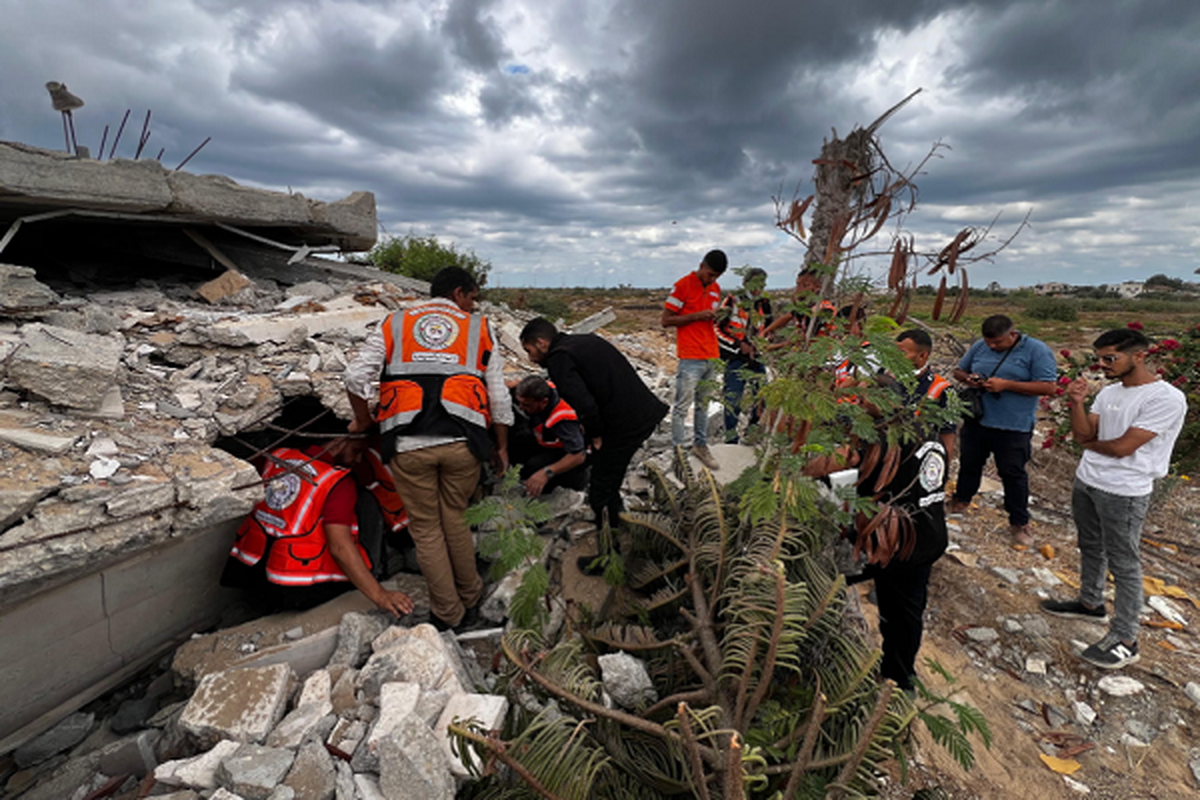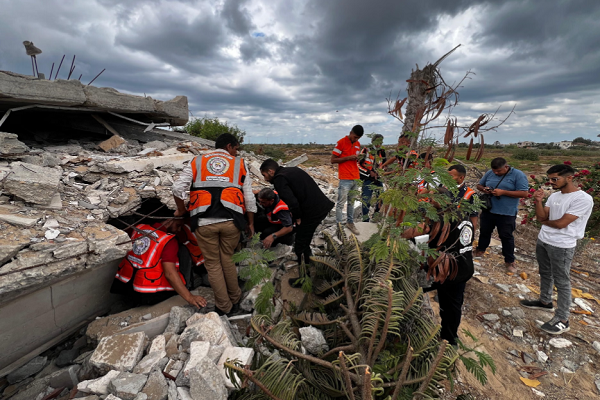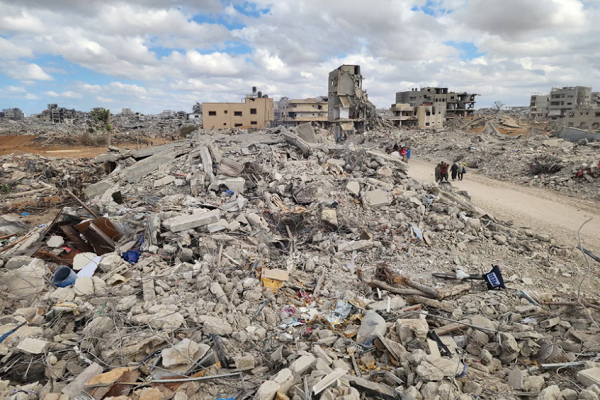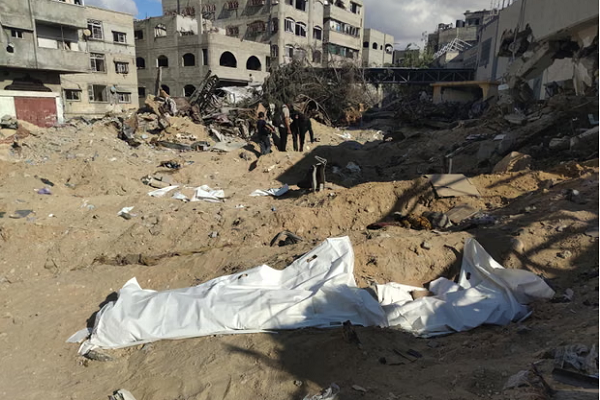Gaza: Immense Pain of Not Knowing Where, When or How Loved Ones Died


They have spent months in exile from their homes, waiting in limbo for the chance to find even a fragment of those they lost, something to say goodbye to, the Guardian wrote in a report, which is as follows:
Ghali Khadr spent two days pleading with his parents to flee with him to southern Gaza, warning them that it was too dangerous to stay. His father, known for being stubborn, refused. Their argument was never finished – an Israeli airstrike hit his father’s home, burying his parents beneath the rubble.
On Sunday, two days after the ceasefire was announced, Khadr returned to search through the ruins of his parents’ home. He spent the day sifting through shattered concrete and twisted metal for any sign of them. All he managed to find were some shards of their skulls and parts of their hands.
“My father, a retired ambulance driver, was known for his strong will and patience. He did not know fear and was always optimistic,” said Khadr, 40, of Jabaliya in northern Gaza.
Khadr took the remains of his parents to the graveyard, but found that it too had been destroyed. He decided to bury them next to the few graves that were still intact.
Like Khadr, thousands of Palestinians have returned to northern Gaza since Friday’s ceasefire with a grim task ahead of them: searching for loved ones killed weeks or months earlier in Israeli regime airstrikes and whose bodies are buried under the rubble.
Gaza’s civil defense agency estimates that the bodies of about 10,000 people are trapped under the debris and collapsed buildings. The halt in the fighting has given the ambulance service the chance to finally start the search for the dead and give their families a chance at closure.
Read More:
The task ahead of the rescuers is immense given an estimated 60m tons of rubble across the territory.

Most roads have been destroyed or blocked by debris. Civil defense workers are short of heavy equipment and have to use pickaxes and sledgehammers to break through collapsed buildings. Rescue crews have to move slowly. The debris is also full of unexploded bombs and ordnance.
“At first, we are focusing on collecting the corpses lying in the streets to preserve what remains of them, especially with the presence of stray dogs that have been attacking bodies,” said Khaled al-Ayoubi, 64, the civil defense chief for northern Gaza.
Other rescuers are forced to dig through rubble with their bare hands. So far, they have only recovered a fraction of the 10,000 missing people and have yet to begin searching through the ruins of multistory buildings.
If Israel permits the entry of heavy equipment in the coming days, all the bodies should be recovered within six months to a year, said Dr Mohammed al-Mugheer, 38, the director of humanitarian support and international cooperation at the Gaza civil defense agency.
Many residents of northern Gaza cannot bear to wait that long. They have begun to return to their ruined homes to search for their loved ones on their own.
Yahya al-Muqra, 32, from Jabaliya, believes his brother, Sharif, is dead. He lost contact with him after an Israeli airstrike on their home on July 25. He managed to visit the razed building but found no sign of Sharif’s body.
“We went to check the area, but found no trace of him, as if he had vanished, the house and everything around it had turned to rubble,” Muqra said. “Witnesses said they last saw him near the house.” His brother suffered from epilepsy, and he worries that even if the airstrike did not kill him, he would have died without his medication.
Read More:
On Sunday, Muqra finally had the time to search for his brother, but working by himself he could find no sign of him.
“I was hoping to find something that proves Sharif was there, a piece of clothing, any trace. We really need heavy machinery to search under the rubble, but these machines are unavailable,” he said.
For many families, the pain of not knowing where, when or how their loved ones died is immense. They have spent months in exile from their homes, waiting in limbo for the chance to find even a fragment of those they lost, something to say goodbye to.

Providing families with that chance is what drives Gaza’s rescue workers, who labor painstakingly under the intense sun while anxious families wait by their side.
“Families feel that recovering the bodies of their martyrs is a way to honor them and preserve their souls, and it reassures them that their loved ones truly became martyrs and are no longer alive,” said Fadi al-Salibi, 35, a civil defense employee.
Read More:
Muqra hopes that the coming days will reveal something about his brother’s fate. With the cemeteries in his neighborhood destroyed, he plans to bury Sharif in the garden of his home.
“My heart is broken because my brother has not been buried yet. Even a single bone would allow us to lay him to rest and feel some relief,” he said.
Source: The Guardian



